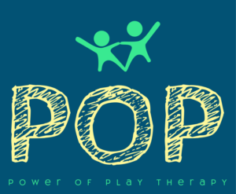 Play Therapy is the best form of therapy for children and young people. Through Play, the child can express their difficulties using a language that they are familiar with.
Play Therapy is the best form of therapy for children and young people. Through Play, the child can express their difficulties using a language that they are familiar with.
Play is the child’s natural way of expressing themselves and helps them grow into healthy adults.
Play gives children the opportunity to express their feelings and emotions. Play Therapy has many benefits to strengthen healthy brain development. Neuroscience has shown that play is essential in the successful development of the brain, especially with problem solving and how we interact with others and the world.
Play Therapy has many benefits to strengthen healthy brain development. Neuroscience has shown that play is essential in the successful development of the brain, especially with problem solving and how we interact with others and the world.
Play also releases important chemicals in the brain. Chemicals which give a sense of calm and happiness in the child. Teaching staff and parents have reported that their child is calmer, can stay focused for longer and is able to manage their ‘big feelings’ in a more appropriate manner after Play Therapy.
Book your child’s Special Time
Each session takes place in a comfortable environment, sometimes sessions are in school and lasts for 40 minutes. In that time the child will engage in creative activities such as clay, sand, paint, Lego, stories, music, movement and puppets. It is up to them what they choose.
The average number of Play Therapy sessions provided for a child is 16 sessions, and a minimum of 12 sessions is offered. During the assessment period it is easier to estimate the length of expected support needed. Usually, the longer a child has been experiencing difficulties, the longer your child will need support.
A review will be planned in after every 8-9 sessions with parents (and schools if appropriate) to decide what is best.
Rather than referring to sessions as Play Therapy, for younger children we prefer the term ‘Special Time’. Play Therapy is harder to explain, but the sessions are their Special Time to play, which will help them to cope with the difficulties they are facing. Therefore, please refer to the sessions as ‘Special Time’ when you talk with your child.
 The Play Therapy sessions are confidential and therefore anything done, made or said in the room stays in the room unless there is a cause for concern for the child’s safety. In which case, we are bound to follow safeguarding procedures. It is unusual for a child to be given time where parents or school don’t know everything that is happening and what they are doing. For some children, this makes their sessions extra special. The children are explained the term confidential through play and they know that they are able to share anything from their sessions if they want to. It is only the therapist who has to keep the sessions confidential.
The Play Therapy sessions are confidential and therefore anything done, made or said in the room stays in the room unless there is a cause for concern for the child’s safety. In which case, we are bound to follow safeguarding procedures. It is unusual for a child to be given time where parents or school don’t know everything that is happening and what they are doing. For some children, this makes their sessions extra special. The children are explained the term confidential through play and they know that they are able to share anything from their sessions if they want to. It is only the therapist who has to keep the sessions confidential.
 Parents and teachers will be asked to complete a Strength and Difficulty Questionnaire (SDQ) to assess if this intervention is appropriate for your child.
Parents and teachers will be asked to complete a Strength and Difficulty Questionnaire (SDQ) to assess if this intervention is appropriate for your child.
Additionally, before the therapy begins there will be a confidential meeting between the parent and therapist to explore concerns and at which time there will be plenty of opportunity to ask questions.
- finds it hard to concentrate and learn
- has nightmares or disturbed sleep
- is at risk of being/is excluded from school
- is experiencing family difficulties
- suffers because of separated/divorced parents
- suffers from anxiety/stress
- has many worries
- eating disorders
- is withdrawn or unhappy
- finds it difficult to make friends
- bullies others or is being bullied themselves
- behaves inappropriately
- has experienced a loss or bereavement.
If your child is experiencing any of the above difficulties, don’t delay. Early intervention is key to successful treatment, contact us ASAP.
Play Therapy can also be provided in small groups, for children with similar difficulties.




